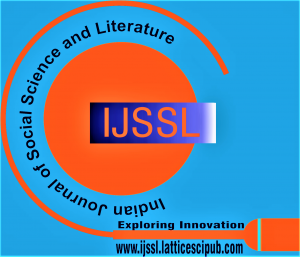New Dimension in Higher Education in India
Gedam. Kamalakar1, Kandi Kamala2
1Dr. Gedam Kamalakar, Researcher, Department of Political Science, Osmania University, Hyderabad (Telangana), India.
2Dr. Kandi Kamala, Assistant Professor, Department of Political Science, Government Degree University for Women (Autonomous) Begumpet, (Affiliation) of Osmania University, Hyderabad (Telangana) India.
Manuscript received on 21 May 2022 | Revised Manuscript received on 04 June 2022 | Manuscript Accepted on 15 June 2022 | Manuscript published on 30 November 2023 | PP: 27-33 | Volume-1 Issue-4, June 2022 | Retrieval Number: 100.1/ijssl.E1027091522 | DOI: 10.54105/ijssl.E1027.061422
Open Access | Ethics and Policies | Cite | Zenodo | Indexing and Abstracting
© The Authors. Published by Lattice Science Publication (LSP). This is an open-access article under the CC-BY-NC-ND license (http://creativecommons.org/licenses/by-nc-nd/4.0/)
Abstract: Higher Education has an important role in the task of rebuilding a nation and it paves the way for overall development of a nation. The twentieth century has witnessed several revolutions like Green revolution, White revolution, I.T revolution, so on and so forth, taking human civilization to new heights. At the start of 21 st century, we gave a lot of importance given to higher education. Every country realized the value of higher education and the benefits that accrue from it. “The social demands for higher education continue to increase. The inabilities of the state to support this growing demand result in new financing arrangements for higher education. The recent reforms in this area could be broadly divided into two categories: the privatization of public institutions and the establishment of private institutions of higher education. Privatization implies the application of market principles in the operation of public institutions, while ownership rests within the public domain. Promotion of the private sector implies the growth and expansion of the non-state sector in higher education, and very often this sector does not rely on state funding forits growth and expansion. Both of these measures have paved the way for market operations in higher education
Keywords: Foreign Countries, Higher Education, Educational Quality, Access to Education
Scope of the Article: Education
